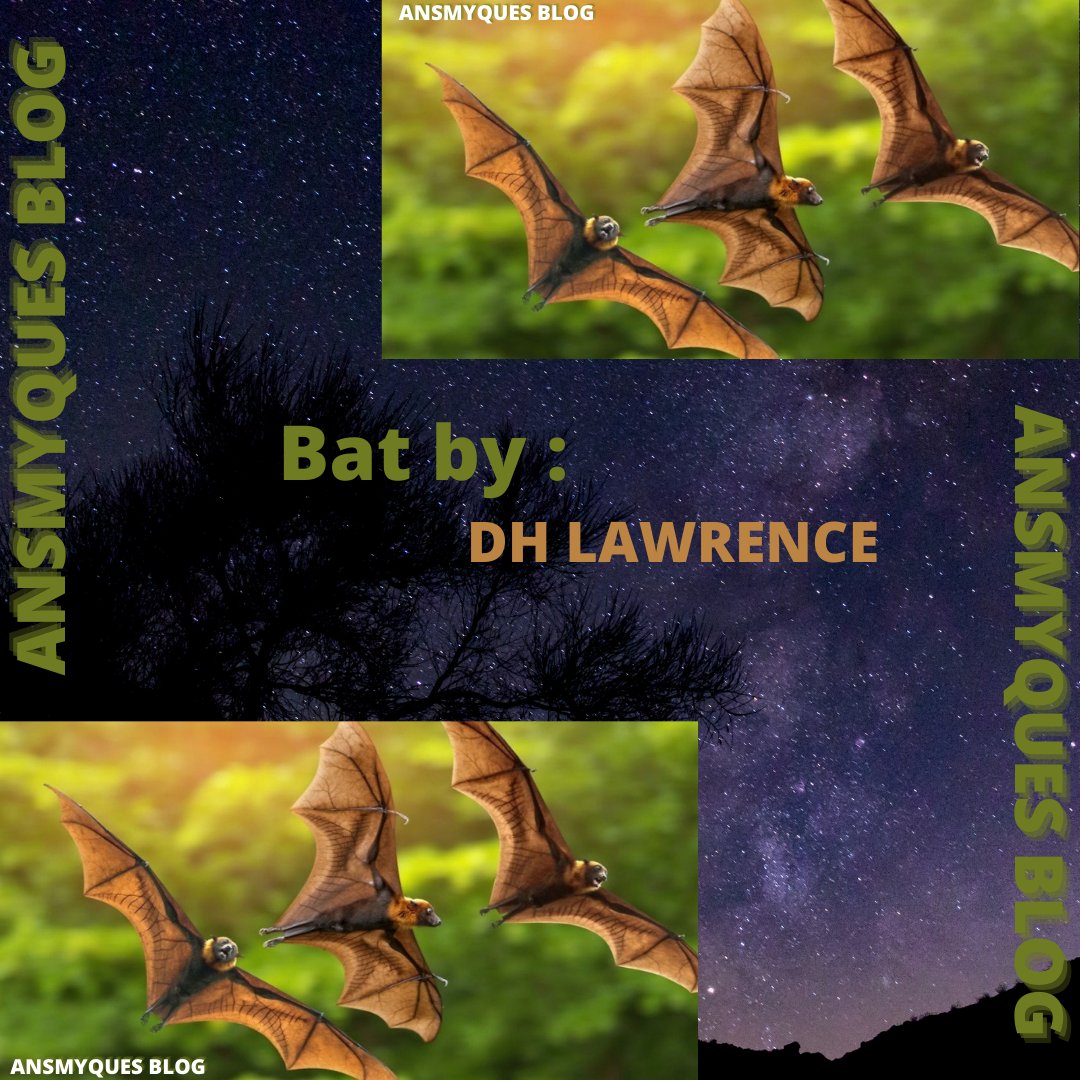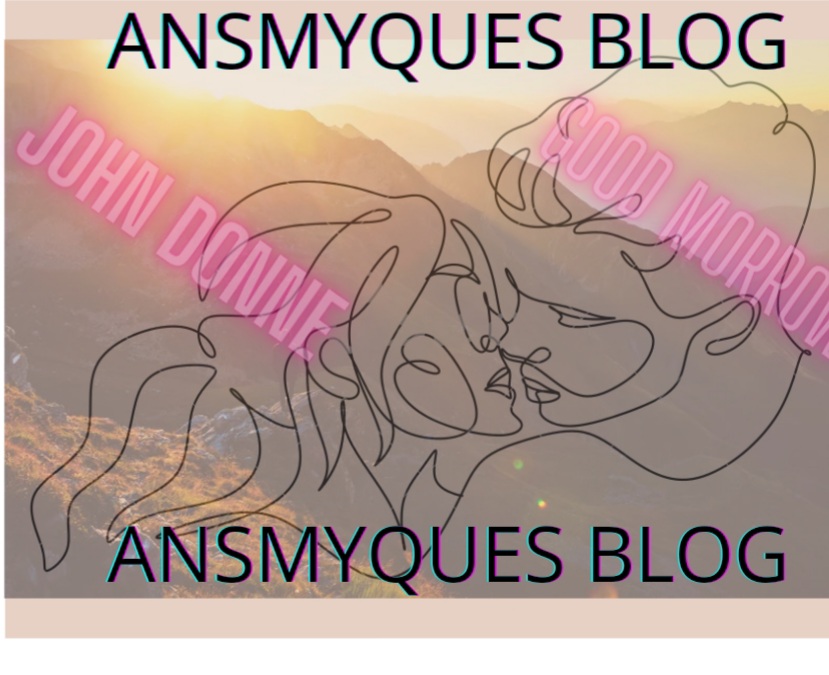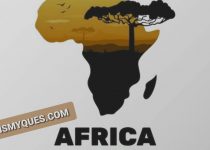“AFRICA” poem by Sola Owonibi Background, Setting, Summary/Analysis
IBKINTELLECT conducts paid online Tutorials for Art JUPEB students, if interested use the WhatsApp button below to contact us
Africa – Sola Owonibi
Generous mother of the universe
beautiful, simple, unexplored
Until you lost your innocence to
Rapists across the seas
An eternal stigma
Land of civility and culture
embraced the treaties for dividends
the dividends came as
streams of sweat
rivers of tears
oceans of blood
Yet you survived
the claws of angelic hawk
the bruises of satanic hugs
not without a scar
The blood of the enslaved
the souls of the dehumanized
cry for justice
cry for reparations
Let the cloud hear
and tell the rain
that cricket may be forced to
hole-up by the storm
“AFRICA” poem by Sola Owonibi Background, Setting, summary/analysis
Background of the Poem “Africa” by Sola Owonibi
Sola Owonibi is a renowned African poet and also a writer, he is a dramatist, a literary critic coupled with being an activist, as one could see how this poem exhibit that stance about him when he hammered on restitution and justice for the unjust done in lines towards the end of the poem. Sola Owonibi is a Nigerian from the south-western part of the country like other renown writers including Wole Soyinka, Niyi Osundare, who wrote the popular “eye of the earth anthology”. Sola Owonibi is most popular among Nigerian poet after he wrote “Homeless not Hopeless” where he talks about the life of an ordinary common man in the society. He is currently a professor and teaches in department of English in Adekunle Ajasin University, Akungba, Akoko, Ondo State. Ever since he stated teaching in the University in 2004, he has taught in fields relating to cultural studies, Caribbean studies, literature and medicine, and global studies. He is a post-colonial writer and his active participation of connecting the historical background to where it currently his might be very accessory to the fact of writing this poem.
Setting of the Poem “Africa” by Sola Owonibi
The setting of any literary work of art talks about the time and place of the event. The literal setting of the poem is Africa and it will be more accurate to say that the poem was Pre-independent past of many of the African countries. The poet believes that there is no way anything can be appreciated until one finds the root of where it begins. The poet in his tone tries to connect his reader from the pre-independent past with the current-modern society most of the Africa and third world countries have found themselves. He describes the feeling to be a ‘stigma’ on the continent at large. The setting is also psychological based in that this will forever live in the mind of Africa children, the current generation and generations yet unborn in other for them to know the evil and the stigma the white-colonialist has once done to their ancestral parent and to know how to deal with them in other not to let the Africa heritage finally wipes out. In his tone, he also calls for restitution which is a common feature of some of the past poets and will be feature of the coming that restitution should be done even if a little to at least make up for the wrong done to the blacks in the past.
Summary and Analysis of the poem “Africa” by Sola Owonibi
“Africa” by Sola Owonibi reflect on the evil that has been done to the land in years-past. Africa has generally been known for its green life, fertile soil, natural resources and cultural heritage, this glory which is most accessible to many of her children accords her the designation of “Generous mother of the universe” this should create an imagery of a black woman providing for lot of kid in a rustic setting, her generosity in this scene was describe to be ostensibly “beautiful” “simple” and “unexplored” not until the colonialist invaders arrived. They believed their culture is way supreme and civilized imposing it on Africans and justifying it with the claim that the Africa tradition is barbaric and trite, this was even more pronounce in the French west-Africa and other part that was colonized by the French people. The assimilation policy was to make Africans become like them, using that opportunity to breed sect in the name of “French citizens” and “French Subject”. The assimilationist idea was so uncalled for to the extent of the “Indignant policy of 1956” where a French citizen can forcefully imprison a French subject without any trial.
The invasion of the white colonialist wreaked havoc and makes Africa lost her “Innocence” just like a rapist would have done to an inexperience young girl. The second stanza makes us realize that even Africa was the “land of civility” as against the erroneous notions of the colonialist who wants to justify their claim at all cost, because historically Egypt is the cradle for civilization in the world and Egypt itself is in Africa and at a time colonize by Britain until her independent in 1922 becoming the first Africa country to get independence from colonial rule. The second Stanza of the poem makes us remember the lot of treaties that African leaders was tricked into signing, most signed them and give out their territory in the Agreement, well said in “Treaty for Dividend” which came with suffering, pain, anguish, agony and turmoil of different sorts as this leader won’t agree with the colonialist so easily, some were exiled, as exemplified with that of Oba Kosoko in Lagos in 19th century, while some were killed. These indeed strengthen the claim of the poet that the dividend came with “stream of sweat”, “rivers of tears”, “oceans of blood” but yet the African continent survive and cannot be wiped out.
The third Stanza of the poem expound on what the white colonialist paint themselves to be as against what they really are. The oxymoron “Angelic hawk” shows that they are not even close to what they called themselves, they believed they are some sorts of angel but in real respect they are hawk that watches from high-far place to prey on peaceful animals that walks the land. The poet describes their “bruises” like “Satanic hugs” which had not happened without a “scar”.
The fourth Stanza happens to be a change in the tone of the poet when he was hell-bent on calling out for restitution, this is that even in the modern time Africa still suffers neo-colonialism, which is being subjective to one’s erst-while masters and a stigmatization of inferiority in the world. All these put together is what makes the writer “cry for justice”, “cry for Reparation” and he begged in stanza five that that “The cloud hears and tell the rain”, this probably mean that the current generation should hear and never hold it back to tell the coming generation of this evil ordeal done by the colonialist. This is a call that others to continue to retell Africa story, as he re-echoes past advocates, who have repeatedly called for a restitution and redress to right the wrongs done to Africa, even if minimally.
Themes in ‘Africa’ by Sola Owonibi
- Natural Beauty: The beauty of Africa is to be reckoned with in the poem, the poem sees Africa in light of being generous, beautiful and innocent until the white colonialist came upon it and raped it, murdering many lives and stealing the natural resources of the land to nourish their economy and beautify their countries abroad. We can see through the tone of the poet that Africa beauty though raped will forever radiate as it generosity has make it spread its tentacles to Europe and the North Americas at large
- Slavery: The poem exposes the evil of white colonialist even from the beginning when he tagged them from stanza 1 as “rapist across the sea”. One Africa country or the other must have witness slavery at a time in their live. This, horrific event for many years before it then become colonial era was that of debilitating memories coupled with subjugation of different sort. Enslaving the blacks in the past has left it a stigma, which the poet supposes will be forever nurtured.
- Colonization: Colonial Era was characterized with another semi-slavery, this time it is backed up with adventurism, economy, political stance. The Colonial period was the era that comes just after the Slavery era. The slavery era was put to stop through the togetherness of the abolitionist and one of the leading proponent of, “slaves don’t work better under the condition of being a slave”, Lord Mansfield, a judge who declared in Britain for the first time that “any slave who set foot on the British soil at once become a free-man”. this decision was made in England in the popular “Somerset case” other country follow suit this decision and this saw the end of slavery era and subsequently after some years the beginning of colonialism and the partitioning of Africa at the Berlin Conference in 1884/85.
- Injustice: This is for the reader to understand the injustice done to Africa and how he uses the opportunity to call them to book, he supposes “reparation” had be the best thing to do here
- Stigmatization: The mark the Europeans has left on the Africa people has caused it stigma and in modern society makes her look inferior to another continent. This was as a result of years of slavery which starts in colonial period and subsequently Neo-colonialism, which is currently a problem to reckoned with.
LITERARY DEVICES IN AFRICA BY SOLA OWONIBI
- Metaphor: Africa is compared in the poem to a “generous mother” who is generous, beautiful and simple
- Personification: Africa is personified as a beautiful mother
- Irony: It is ironic that a people who lay claim to civilization could at the same time be so barbaric as to cause others so much pain and agony. There is no mark of civility in their action of traumatizing and “raping” and leaving the people with “scar” and “eternal stigma”.
- Hyperbole: in the last lines of the first stanza: the dividends came as
streams of sweat
rivers of tears
oceans of blood - Oxymoron: This is exemplified in words like “the claws of angelic hawk” (Hawks are not known for being Angelic), the bruises of satanic hugs (Satan is supposedly suppose to reflect fear, hatred and all sought of wrong doing, and it is believe he, Satan, isn’t capable of love, talk more of the amorous hug he was suppose to give here”
- Parallelism: Parallelism is the repetition of grammatical elements in a piece of writing to create a harmonious effect. This is exemplified in “cry for justice cry for reparations”


